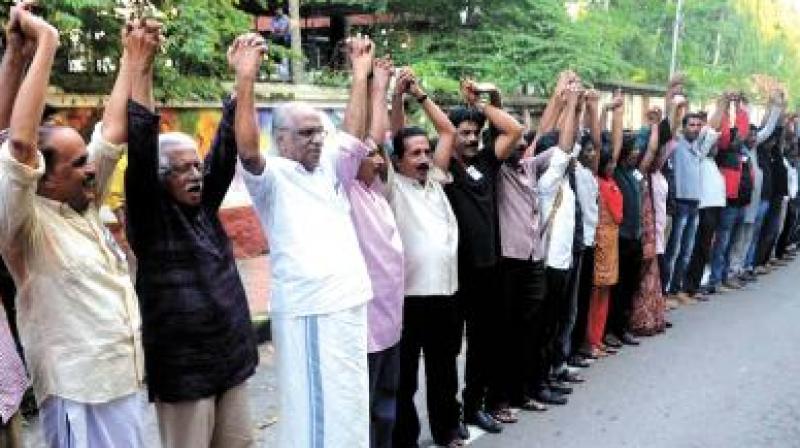World's longest human chain to be formed in Bihar supporting liquor ban
The chain will be over 3,000 km long, involving more than two crore people, Bihar CM Nitish Kumar.

Patna: Bihar is planning to form the world's longest human chain, which will be over 3,000 km long, on January 21, involving more than two crore people, to express its commitment towards liquor ban, Chief Minister Nitish Kumar said on Tuesday.
The human chain will be formed to herald the second phase of a campaign in support of prohibition, he said at a workshop of the JD(U) in Patna.
Briefing party MPs, legislators and office bearers on prohibition and 'seven resolves' of his government, Kumar said 2,000 people will participate in one km of the proposed human chain.
About 56 lakh participants will hold each others hands on the main route. While, more than 1.5 crore citizens will form human chain in sub-routes within the districts, the Chief Minister said, adding the exercise will involve more than two crore people.
The human chain will be formed at 10 am on January 21 for half an hour. The participants will stand in queue on the left side of the road, he said.
The human chain will herald the launch of the second phase of the campaign in support of liquor ban enforced in April this year, which will continue till March 22 next year, Kumar said.
Giving details of the routes, the Chief Minister said the human chain in North Bihar will cover 1,821 km and in South Bihar 1,186 km connecting all districts.
In North Bihar, a 274 km human chain will be formed from Banuani to Mushridharari, Muzaffarpur, Motihari, Bettiah and Mangalpur. There will be a 163 km human chain from Patna to Hajipur, Muzaffarpur, Sitamarhi and Sonebarsa, he said.
In South Bihar, a 223 km human chain will be formed from Durgawati (on the border of Uttar Pradesh) to Mohania, Sasaram, Aurangabad, Arwal and Jehanabad. Another one will be 155 km-long from Patna to Dobhi (Gaya) and Barachatti (on theborder of Jharkhand), he said.
Photography of the gigantic human chain will be done with the help of drone/low flying helicopter and satellite, the Chief Minister said, adding government officials, teachers, students (above class V) and members of NGOs will participate in the human chain for which traffic police will make proper arrangements.
